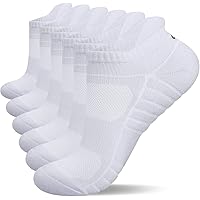Achieving and maintaining fat loss can be challenging, but with the right combination of dietary changes, exercise, and lifestyle adjustments, you can reach your goals. This guide provides practical, evidence-based tips to help you effectively lose fat and keep it off.
Understanding Fat Loss
Fat loss occurs when you burn more calories than you consume. This can be achieved by creating a calorie deficit through a balanced diet, regular physical activity, and healthy lifestyle habits. Sustainable fat loss focuses on gradual changes that can be maintained over the long term.
Dietary Tips for Effective Fat Loss
- Adopt a Balanced Diet: Focus on consuming whole foods such as fruits, vegetables, lean proteins, whole grains, and healthy fats. Avoid processed foods, sugary drinks, and high-calorie snacks. Keywords: balanced diet, whole foods, lean proteins, healthy fats, avoid processed foods.
- Control Portion Sizes: Be mindful of portion sizes to avoid overeating. Use smaller plates, measure your servings, and avoid eating directly from packages. Keywords: portion control, smaller plates, measure servings, avoid overeating.
- Reduce Sugar Intake: Limit your consumption of added sugars found in sweets, sodas, and processed foods. Excess sugar intake can lead to weight gain and fat accumulation. Keywords: reduce sugar intake, limit sweets, avoid sodas, processed foods.
- Increase Protein Intake: Include more protein in your diet to help build muscle and increase metabolism. Protein-rich foods can also help you feel full and satisfied, reducing overall calorie intake. Keywords: increase protein intake, build muscle, boost metabolism, feel full.
- Stay Hydrated: Drink plenty of water throughout the day. Staying hydrated can help control hunger and reduce the likelihood of overeating. Keywords: stay hydrated, drink water, control hunger, reduce overeating.
Exercise Tips for Effective Fat Loss
- Engage in Regular Cardio: Aim for at least 150 minutes of moderate-intensity or 75 minutes of high-intensity aerobic exercise each week. Activities such as running, cycling, and swimming are effective for burning calories. Keywords: regular cardio, aerobic exercise, running, cycling, swimming.
- Incorporate Strength Training: Include strength training exercises at least twice a week to build muscle, which increases your resting metabolic rate and helps burn more calories. Keywords: strength training, build muscle, boost metabolism, burn calories.
- Try High-Intensity Interval Training (HIIT): HIIT involves short bursts of intense exercise followed by rest periods. This type of workout is highly effective for burning fat and increasing metabolic rate. Keywords: high-intensity interval training, HIIT, intense exercise, burn fat.
- Stay Active Throughout the Day: Look for opportunities to move more throughout the day. Take the stairs, walk during breaks, and engage in activities that keep you active. Keywords: stay active, take the stairs, walk during breaks, increase movement.
Lifestyle Adjustments for Effective Fat Loss
- Prioritize Sleep: Aim for 7-9 hours of quality sleep each night. Lack of sleep can disrupt hormones that regulate hunger and appetite, leading to weight gain. Keywords: prioritize sleep, quality sleep, regulate hunger, prevent weight gain.
- Manage Stress: Practice stress-reducing techniques such as meditation, yoga, or deep breathing exercises. Chronic stress can lead to emotional eating and weight gain. Keywords: manage stress, meditation, yoga, deep breathing, emotional eating.
- Set Realistic Goals: Establish achievable fat loss goals and celebrate small milestones. Avoid setting unrealistic expectations that can lead to frustration and setbacks. Keywords: realistic goals, achievable fat loss, celebrate milestones, avoid frustration.
- Build a Support System: Surround yourself with supportive friends and family who encourage your fat loss journey. Consider joining a support group or seeking professional guidance. Keywords: support system, encourage fat loss, support group, professional guidance.
Monitoring Your Progress
- Track Your Food Intake: Keep a food diary or use a mobile app to monitor your eating habits. This can help identify patterns and make necessary adjustments. Keywords: track food intake, food diary, mobile app, monitor eating habits.
- Regular Weigh-Ins: Weigh yourself weekly to track progress without becoming discouraged by daily fluctuations. Keywords: regular weigh-ins, track progress, avoid daily fluctuations.
- Adjust Your Plan as Needed: Be flexible and make adjustments based on your progress. If you hit a plateau, consider changing your exercise routine or revisiting your diet.



